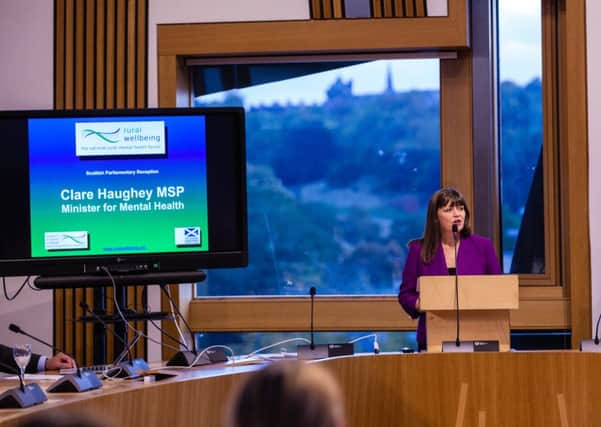Dr Maqsood Ahmed: Still a long way to go in tackling mental health – but support is available


In November 2017, I sought help for a close family member suffering severe mental distress. My attempts at securing an appointment with a specialist took several months and were an exhausting struggle.
When a diagnosis was finally made, I was left wondering whether it was a diagnosis at all or simply a regurgitation of symptoms (depression with psychotic features).
Advertisement
Hide AdAdvertisement
Hide AdThe trial and error approach of finding an effective treatment led to a loss of trust, and combined with some negative side-effects, resulted in a refusal to take any medication.


Like many, I am an instinctive supporter of the NHS, so I was taken aback at the lack of help, support and compassion available. This was particularly surprising when juxtaposed with the level of care my father received following a diagnosis of bone cancer.
In that instance, exemplary medical treatment was combined with offers of support and counselling and effective signposting towards any additional information we may need.
The size of the problem becomes clear when you consider that two out of three people who require mental health treatment fail to receive it, whilst those with lifelong mental illness die on average 15-20 years younger than their peers. Why the two situations are treated so differently, I don’t know, but raising awareness and destigmatising mental health must surely be at least part of the answer.
Support in Mind Scotland (SiMS), seeks to support those affected, either directly or indirectly, by mental ill health. Embedded within local communities throughout Scotland, SiMS provides a number of services, ranging from practical advice and emotional support to drop-ins and group activities, complementing statutory services.
We give a voice to our members to influence change by actively seeking out and developing partnerships with politicians and decision-makers at a local and national level. By raising awareness and understanding of mental health issues, we aim to combat the stigma and discrimination often associated with mental illness.
Since joining the board of SiMS, I’ve been pleasantly surprised at the range and extent of services available. Through our partnership with Mental Health UK, we launched the UK-wide mental health and money advice helpline in 2017, which has since provided practical help to more than 1000 people, saving each person an average of £1000 worth of debt.
Meanwhile, with 95 per cent of Scotland deemed rural, we established the National Rural Mental Health Forum to tackle the stigma around mental health issues in rural communities and make it an everyday discussion topic. Over the past 18 months, the forum has grown from 16 to 60 membership organisations involving public, private and third sector bodies representing many rural communities.
Advertisement
Hide AdAdvertisement
Hide AdLooking ahead, developing resources and support for young people facing mental health challenges is a priority. Particularly so when you consider that half of people with mental health conditions first experience symptoms before the age of 15 and that three quarters of all mental health problems are established by the age of 24.
We know that early intervention can result in dramatically improved outcomes and so early detection of mental distress must be a priority. It’s also reassuring to see the Scottish Government is aiming to refocus the role of the school nurse with mental wellbeing a key focus.
You could be forgiven for asking if any of this work has a meaningful impact. It’s easy to be cynical, particularly when contrasting a government mental health strategy or a ‘five-year-plan’ with the glacial pace of change in the quality and accessibility of care.
However, I feel that there are real reasons, at both a local and national level, for cautious optimism. Perhaps most promising is that numerous surveys show public attitudes towards mental health are improving significantly and it’s becoming a greater political priority.
This can be seen with the appointment of a specific Minister for Mental Health, a position now occupied by Clare Haughey, who recently attended our parliamentary reception for the National Rural Mental Health Forum.
Two national charities (MQ Transforming Mental Health and Mental Health Research UK) have been established to focus solely on mental health research.
These provide hope that improved understanding of the science underpinning mental health conditions can, in the long term, lead to better treatments and early interventions.
There still remains a long way to go before mental health achieves ‘parity of esteem’ with physical health.
Advertisement
Hide AdAdvertisement
Hide AdIn the meantime, charities such as SiMS, their staff and volunteers, continue to play a pivotal role in supporting thousands of people with mental health challenges each year.
Dr Maqsood Ahmed, chairperson, Support in Mind Scotland’s board of directors.